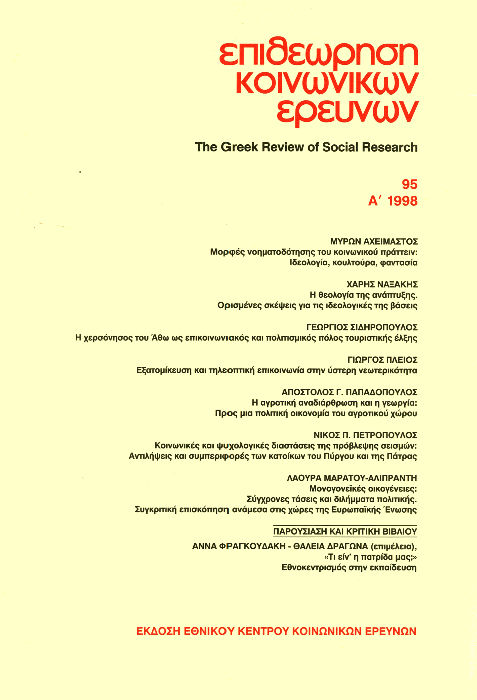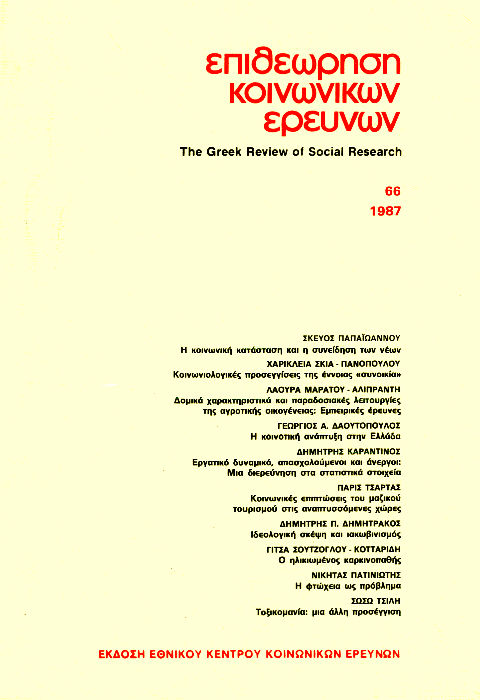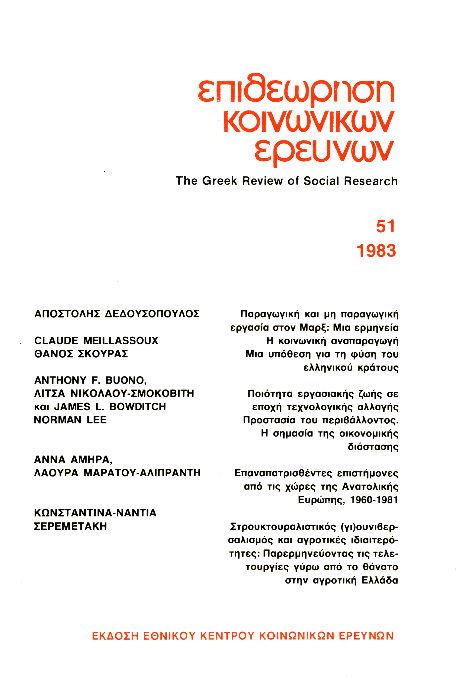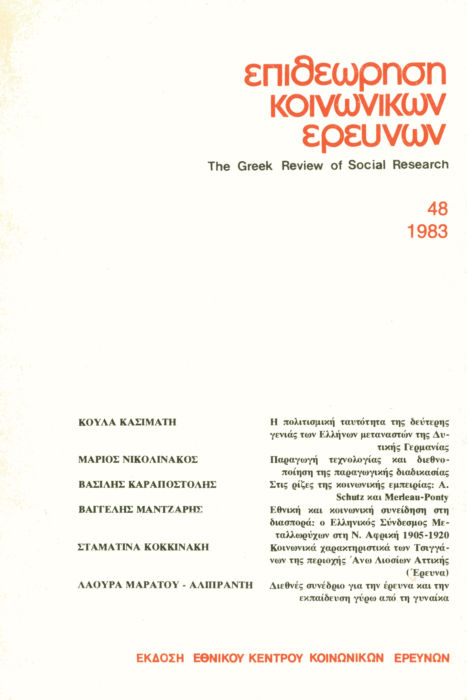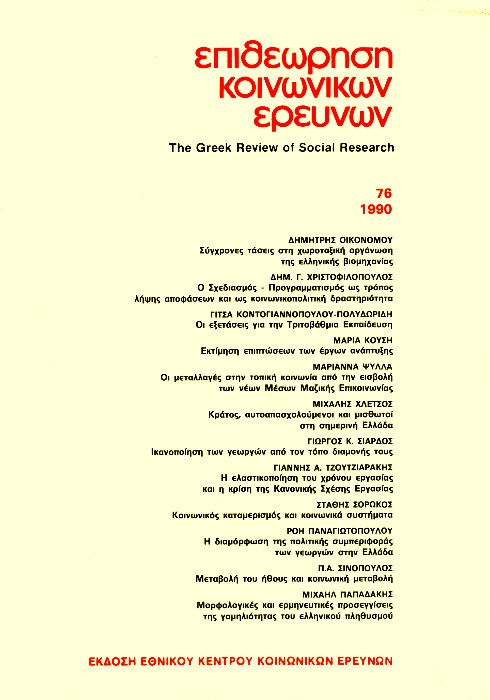Διαγενεακές σχέσεις στη σύγχρονη εποχή: θεωρήσεις, τάσεις, πρακτικές: συγκριτική επισκόπηση
Abstract
Κατά τη σύγχρονη εποχή, ποικίλοι παράγοντες που έχουν σχέση με τις κοινωνικοοικονομικές συγκυρίες, τις αλλαγές στις κοινωνικές αντιλήψεις αλλά και τις δημογραφικές εξελίξεις επηρέασαν τη δομή της οικογένειας και τις διαγενεακές σχέσεις. Ακόμη η αβεβαιότητα και η αστάθεια που παρατηρούνται έχουν συμβάλει στην αναβίωση των συγγενικών σχέσεων που, όμως, έχουν περιοριστεί κυρίως σε σχέσεις μεταξύ ενηλίκων παιδιών και γονέων και έχουν γίνει αρκετά πιο περίπλοκες σε σχέση με το παρελθόν. Στο πλαίσιο της μελέτης αυτής, επιχειρείται η κοινωνιολογική θεώρηση των παραγόντων που προσδιορίζουν σήμερα τις συγγενικές σχέσεις στη μετανεωτερική εποχή, ενώ, παράλληλα, με βάση εμπειρικά δεδομένα, αποτυπώνονται οι τάσεις και πρακτικές συμπαράστασης σε τέσσερις αναπτυγμένες κοινωνίες.
Article Details
- How to Cite
-
Μαράτου-Αλιπράντη Λ. (1999). Διαγενεακές σχέσεις στη σύγχρονη εποχή: θεωρήσεις, τάσεις, πρακτικές: συγκριτική επισκόπηση. The Greek Review of Social Research, 98, 49–76. https://doi.org/10.12681/grsr.742
- Section
- Articles

This work is licensed under a Creative Commons Attribution-NonCommercial 4.0 International License.
Authors who publish with this journal agree to the following terms:
- Authors retain copyright and grant the journal right of first publication with the work simultaneously licensed under a Creative Commons Attribution Non-Commercial License that allows others to share the work with an acknowledgement of the work's authorship and initial publication in this journal.
- Authors are able to enter into separate, additional contractual arrangements for the non-exclusive distribution of the journal's published version of the work (e.g. post it to an institutional repository or publish it in a book), with an acknowledgement of its initial publication in this journal.
- Authors are permitted and encouraged to post their work online (preferably in institutional repositories or on their website) prior to and during the submission process, as it can lead to productive exchanges, as well as earlier and greater citation of published work (See The Effect of Open Access).




